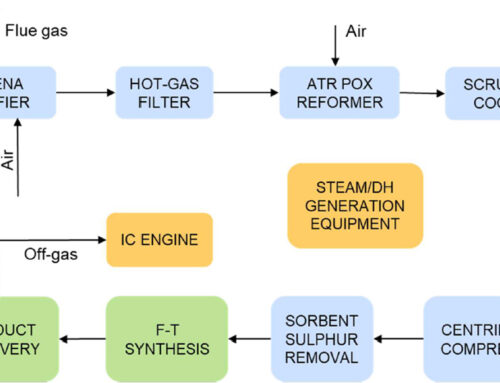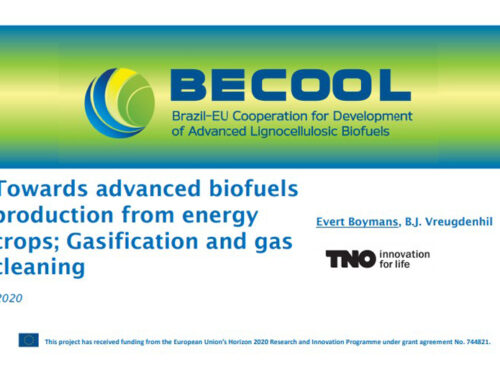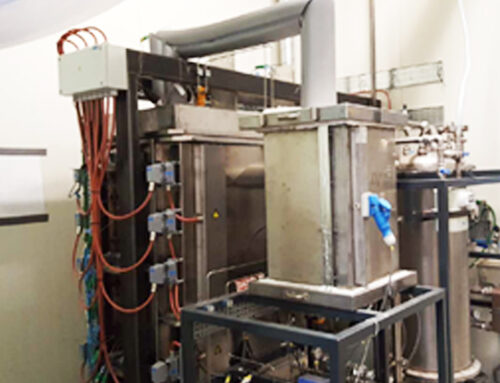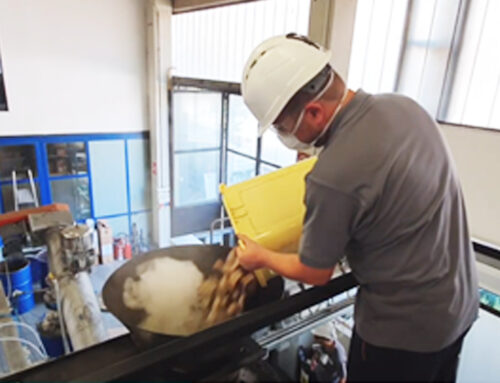 PRESS RELEASE: Innovations in Lignocellulosic Biomass Value Chains for Advanced Biofuels
PRESS RELEASE: Innovations in Lignocellulosic Biomass Value Chains for Advanced Biofuels
Five years of research and demonstration carried out by BECOOL project led to significant findings on multiple aspects of lignocellulosic biomass value chains for advanced biofuels and biorefineries.
13 June 2022 – The deployment of sustainable bioenergy is urgently needed to reach our climate targets, as set out in the Paris Agreement. According to IEA Renewables 2021 report biofuel demand must nearly double to align with the 2050 Net Zero Scenario drawn by IEA1. The latest IPCC Working Group 3 contribution to the 6th Assessment Report2 released in April 2022 confirmed that sourced sustainably and with low-GHG emissions feedstocks, bio-based fuels, blended or unblended with fossil fuels, can provide mitigation benefits, particularly in the short- and medium-term.
Advanced biofuels are one of the solutions to decarbonize transport, especially in sectors where electrification and alternative renewable fuels are not available yet, such as aviation, shipping, and long-haul transports. However, the mobilization of large volumes of biomass is required to deploy the full potential of advanced biofuels, so how can we produce them sustainably and at competitive costs, while preserving our environment and without reducing the agricultural land required for food? These are the main research questions which inspired and guided the work of BECOOL, a Horizon 2020 project coordinated by prof. Andrea Monti of the University of Bologna which run between June 2017 and May 2022.
BECOOL carried out a range of research and demonstration activities which led to significant findings on multiple aspects of lignocellulosic biomass: from the production of non-food crops to biomass logistics and harvesting, to the production of bioenergy intermediates and final products, and a full environmental and socio-economic assessment of their large-scale deployment.
Residual biomass from agriculture and forestry activities is an abundant resource in the EU. In addition to cereal straw which is already utilized for advanced biofuels, other residues such as corn cob and cereal chaff are available at million tons scales and still mostly untapped. Innovative harvesting solutions can enable the collection of those residues with traditional combine harvesters, without reducing the performance of grain harvesting, whilst increasing the amount of biomass collected per unit of land.
Growing annual lignocellulosic crops in multi-annual rotations with conventional food and feed crops can be an effective way to diversify and secure the supply of biomass for advanced biofuels. Five years of field observation in BECOOL showed that the grain yields of cereal crops were not affected by the rotation with lignocellulosic crops, while biomass yield per unit of land increased significantly, contributing also to soil health and fertilizer savings for the subsequent crop. Moreover, perennial crops such as giant reed and switchgrass can be successfully grown on marginal and idle land.
- By combining these different biomass streams, it could be possible to meet the EU demand for advanced biofuels by 2030 with domestic supply.
- The full deployment of those advanced biofuels value chains could generate 25,000 full time direct jobs in a medium biomass mobilization scenario and up to 45,000 in a high mobilization scenario.
The use of liquid energy carriers such as fast pyrolysis bio-oil (FBPO) as feedstock for gasification can also widen the feedstock base for advanced biofuels and enables synergies and integrations with existing fossil routes. Process integration can allow the co-production of bio-based chemicals. The BECOOL project also achieved the successful production of Fischer-Tropsch fuels from sugarcane bagasse with continuous operation. Fischer-Tropsch biofuels from lignocellulosic biomass can achieve high GHG emissions reductions, or even negative emissions, compared to fossil fuel references as required by RED II. Although their production cost is still high, it can be competitive with the costs of other GHG mitigation options.
The activities of BECOOL were aligned with the activities of BioValue, a twin project in Brazil, to diversify the biomass production chains and logistics of advanced biofuels in Brazil, with a focus on aviation biofuels. Building on existing complementarities in scientific expertise and experience, the two projects adopted a synergistic work programme and developed a series of joint activities.
A summary of the main results obtained by BECOOL and their relevance for the current context of biofuels deployment is described in the free publication Innovations in Lignocellulosic Value Chains for Advanced Biofuels, all the detailed project outputs and results are available at becoolproject.eu.
ABOUT BECOOL
![]() BECOOL – Brazil EU Cooperation for the Development of Advanced Lignocellulosic Biofuels has received funding from the European Union’s Horizon 2020 Research and Innovation Programme under grant agreement No. 744821.
BECOOL – Brazil EU Cooperation for the Development of Advanced Lignocellulosic Biofuels has received funding from the European Union’s Horizon 2020 Research and Innovation Programme under grant agreement No. 744821.
Coordinator: University of Bologna Department of Agricultural Sciences (Italy).
Partners: Biomass Technology Group (BTG), the Netherlands); Centro de Investigaciones Energéticas, Medioambientales y Tecnológicas (CIEMAT), Spain; Centre for Renewable Energy Sources and Saving (CRES), Greece; Consiglio per la Ricerca in Agricoltura e l’Analisi dell’Economia Agraria (CREA-IT), Italy; Deutsches Biomasseforschungszentrum Gemeinnuetzige GmbH (DBFZ), Germany; TNO Innovation for Life (TNO), The Netherlands; ETA-Florence Renewable Energies (ETA), Italy; International Institute for Applied Systems Analysis, (IIASA), Austria; Renewable Energy Consortium for Research and Demonstration (RECORD), Italy; Wageningen University & Research (WUR), the Netherlands; Teknologian tutkimuskeskus (VTT) Oy, Finland.
References:
- Renewables 2021 – Analysis and forecast to 2026. International Energy Agency 2021
- Climate Change 2022 Mitigation of Climate Change IPCC AR6 WG III Summary for policy makers.







